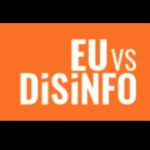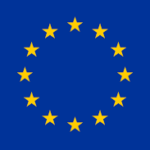Military hostilities used to be the last argument of sovereigns. The barrels of canons would bear the inscription ultima ratio regum (in France) or ultima ratio regis (in Prussia). This has changed a little bit. Since warfare has become a very costly venture and especially since a number of states possess nuclear weapons whose possible use might wreak unimaginable havoc and render large swathes of territory useless for the victorious power, present-day sovereigns have resorted more and more to soft tactics, which are – despite their name – as efficient or even more efficient than firearms. Did not the Soviet Union collapse due to the soft penetration, infiltration and subversion applied by the West? The collective mind of the Soviet leadership was in the cross hairs of the financial, philosophical, political and cultural impact directed against it by the United States, the United Kingdom, France, Germany and smaller players. The result was more than impressive: neither Charles XII of Sweden in the 18th century, nor Napoleon Bonaparte in the 19th, nor Adolf Hitler in the 20th succeed in weakening Russia to anything remotely comparable with what happened with the Soviet Union in 1991 and thereafter. The territory of the superpower was significantly reduced, new independent states were carved out of it, and Russia herself was plunged into a decade of economic chaos and political turmoil in their magnitude surpassed only by the civil war of the early twenties of the 20th century if one only considers modern history. The battle for the minds is certainly not as spectacular as the clash between tanks or dogfights of aircraft, and it certainly is fought over a much extended period, but nonetheless its outcome is more than satisfactory.
The Chinese leadership drew its lessons from the disintegration of the Soviet Union and they have held a tight grip on the state matters before and especially since the 1989 Tiananmen Square riot. Beijing is well aware of the psychological infiltration, penetration and subversion targeting China’s population from abroad and so it has cut off the national internet from the global web and recently has cracked down on the entertainment industry, took control of the computer games and TV programmes to which the Chinese youth is exposed. That’s another instance of the battles for the minds. The European Union is not lagging behind in matters concerning psychological war.
In 2015, the EU’s East StratCom Task Force rolled out its flagship project – as they call it themselves – named EUvsDisinfo, a body that “identifies, compiles, and exposes disinformation cases originating in pro-Kremlin media that are spread across the EU and Eastern Partnership countries.” Within this project, in one of the tabs, news items originating from the sources just mentioned are quoted – white on black – and a disproof is presented: black on orange. In other places a whole analysis is offered, an analysis that devastatingly critiques a text recognised as the Kremlin’s propaganda. Surveying the hundreds of allegedly debunked pieces of information and their sources, one can see almost immediately that EUvsDisinfo has been targeting Sputnik most of the time. Anything that is written against the Post-West, the European Union, the United States, even individuals like George Soros in the media associated with Moscow or regarded as close to Russia comes under attack from EUvsDisinfo, which – naturally! – acts as an absolutely objective source of truth. Consider the following example. Continue reading →



















